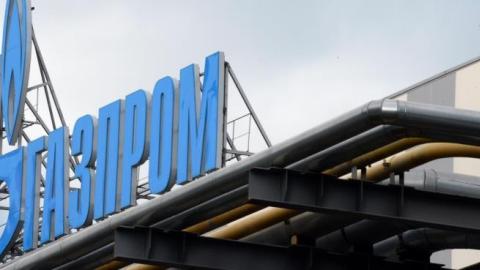The European Union has announced it's going to sue Russia's natural gas giant, Gazprom, for antitrust violations. This came only a few days after the EU announced it was filing a similar suit against Google.
It's hard to say which decision is more short-sighted or obtuse — to sue Google simply because the US company innovates faster than its slow-moving European competitors, or to sue Putin's natural gas monopoly in the hopes that it can loosen Vladimir Putin's headlock on Europe's energy supplies by unleashing a batch of Brussels bureaucrats and lawyers.
Those bureaucrats are full of fire and determination, of course. They've told the press Gazprom will face a multi-million dollar fine for "unfair behavior" in pricing its gas sold to Europe, which happens to be Gazprom's most profitable market, and for tying gas contracts to support for building new pipelines (countries who cooperate end up paying less). Professor Alan Riley at City Law School in London has opined that the fines on Gazprom could be "catastrophic from a business point of view" and that the pressure will be on the gas giant — and Vladimir Putin — to settle.
That conclusion completely misses the nature of Gazprom's relationship with the Putin regime, and nature of Vladimir Putin. He is as contemptuous of the rule of law as he is of weakness. And Gazprom is not a business, but a strategic bulldozer Putin uses to extend his power over Europe. He knows Europe is hopelessly dependent on Russian gas, and he will be no more scared of a lawsuit or fine than he has been of NATO's threats over Ukraine.
That's why, in preparation for a showdown with the EU. Putin has been shifting Gazprom's customer base to Asia. He has already targeted Greece with a deal for discounting the price it pays for gas in exchange for allowing Gazprom to build a pipeline in from Turkey, thus providing yet another route for Russian gas to get to Europe — and increasing its dependence on Gazprom.
Indeed, if anyone is under pressure to settle, it's the EU, as Putin reaches to turn off the tap.
The real answer to Europe's problems with Gazprom, and Putin, lies directly under their feet. The continent sits on shale natural gas reserves equaling 639 trillion cubic feet — roughly equal to half of Russia's reserves (the world's largest) and more than enough to make Europe independent of Putin and Gazprom forever.
But getting at those reserves means relying on American-style hydraulic fracking, which Europe's fanatical green movement has blocked at every step — often (as we noted in a column back in July with secret Russian connivance and funding. Every government in Europe knows fracking would create tens of thousands of jobs, grow the economy, and reduce natural-gas prices to something approaching the price here (which is about a quarter of what Germans or Italians pay). Yet Europe's greens have stymied them by repeating the same falsehoods about fracking that environmentalists assert here.
One is that fracking will contaminate ground water supplies, even though fracking activity takes places thousands of feet below the aquifer. After 60 years of fracking and drilling 1.2 million wells and counting in the United States, there's never been a single documented case of contaminated ground water from drilling.
Another is that fracking will produce earthquakes. Yet a 2012 National Research Council study concluded "the process of hydraulic fracking a well … does not pose a high risk for inducing felt seismic events" — and certainly not the catastrophic scenarios greens try to invoke. Indeed, new technologies involving waterless fracking from companies like Texas-based eCorp and Canada-based Gasfrac pose even less risk of causing tremors that can be detected electronically, let alone rattle a tea cup.
In the end, the real issue is energy security. Americans have invested in fracking to guarantee theirs. Europeans so far have chosen energy insecurity, instead, perpetuating Russia's control over their economic future.
As for Putin and the EU lawsuit, he will be laughing all the way to court.

















